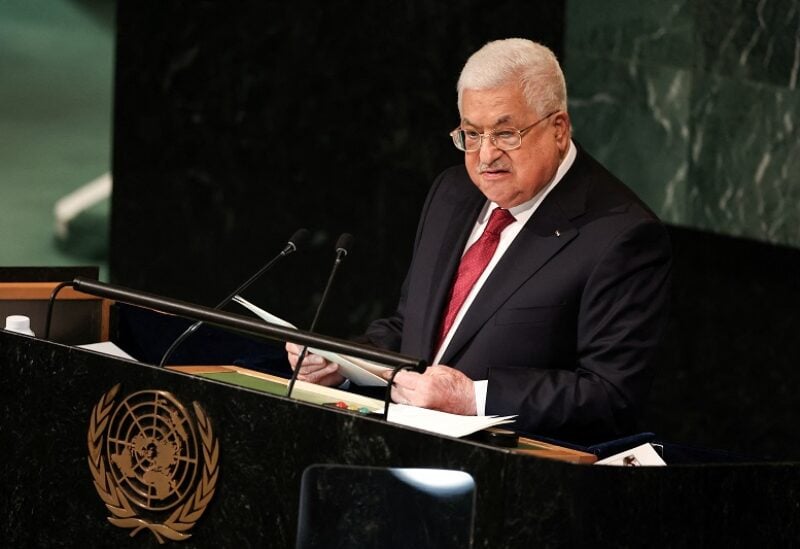
Palestine’s President Mahmoud Abbas addresses the 77th United Nations General Assembly at U.N. headquarters in New York City, New York, U.S., September 23, 2022. REUTERS/Caitlin Ochs
In the shadow of Yasser Arafat, the longtime leader of the Palestinian cause, Mahmoud Abbas lived a large portion of his life before taking office as president of the Palestinian Authority. However, he has never achieved the same status in that position and has not advanced his people’s quest for statehood.
The 87-year-old, who is based in the West Bank city of Ramallah, has seen his influence further overshadowed by the growth of Hamas, the Islamist organization that has been in charge of Gaza since 2006, as well as by the enlarging Jewish settlements on occupied West Bank territory.
U.S. Secretary of State Anthony Blinken visited him on Tuesday, after repeating Washington’s support for a two-state solution. But Abbas has previously said Western governments have effectively undermined that goal by failing to recognise Palestine as a state and by failing to hold Israel to account.
It now seems a distant hope with rising bloodshed on the West Bank in the past year, a drive by the new Israeli government to expand West Bank settlements and recurrent exchanges over Gaza of militant rockets and Israeli airstrikes.
“The Israeli government is responsible for what is happening today, because of its practices that undermine the two-state solution and violate the signed agreements,” Abbas during Blinken’s visit, a charge the Palestinian president often makes and which Israel refutes.
Abbas was the first generation of Palestinian exiles, born after colonial powers drew new Middle Eastern borders and is old enough to recall the first Arab-Israeli war of 1948 when half the 1.4 million Arabs of Palestine – including Abbas himself – fled or were driven from their land into a new life as refugees.
He was an early member of Fatah, the Palestine Liberation Organization (PLO) faction that dominated Palestinian politics for decades. He became leader of both when Arafat died in 2004, and a year later was elected president of the Palestinian Authority, which exercises limited sovereignty in the West Bank.
The high point of his career was a 1993 White House ceremony at which he and Israeli Foreign Minister Shimon Peres signed the Oslo accords which offered the prospect of Palestinian autonomy in the Israeli-occupied West Bank and Gaza Strip.
Behind them were U.S. President Bill Clinton, Arafat and Israeli Prime Minister Yitzhak Rabin, applauding warmly.
In his suit and tie – a stark contrast to Arafat’s keffiyeh headscarf and combat fatigues – Abbas’ advocacy of dialogue over violence and long service as a negotiator raised hopes for a negotiated settlement to the Israeli-Palestinian conflict.
But when Arafat died more than a quarter of a century later the Israeli-Palestinian peace process was moribund and relations with Washington were at a nadir. Critics accused Abbas’ inner circle of graft, nepotism and ineffectiveness.